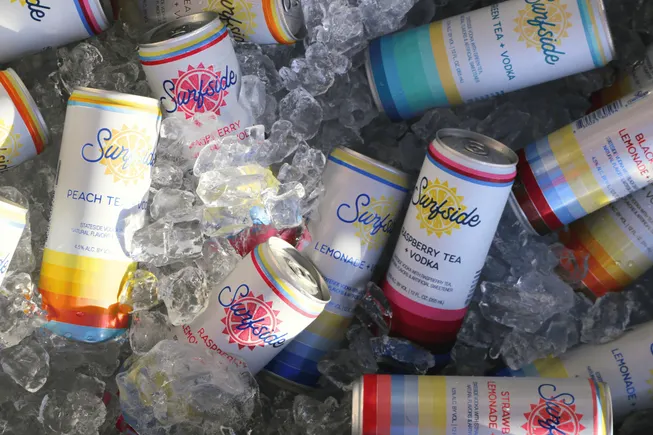Surfside Brands, the parent company of popular vodka tea Surfside, has filed a lawsuit against beverage giant Anheuser-Busch for allegedly copying the design of their canned drinks for their competing Skimmers line of ready-to-drink cocktails. The lawsuit points out similarities in both products’ can designs, including color bands on the bottom of the can, a white background, and a sun logo at the top. Surfside claims that Anheuser-Busch is trying to capitalize on the popularity of their vodka tea by releasing a similar-looking product.
Surfside is seeking damages and a court order to stop Anheuser-Busch from using the design. An Anheuser-Busch spokesperson has stated that the lawsuit is without merit and they will vigorously defend against it.
This lawsuit is part of a trend in the food and beverage industry where companies are taking legal action over alleged copycat products and unfair competition. J.M. Smucker previously sued Trader Joe’s over a “copycat” Uncrustables, and Mondelēz has alleged that Aldi’s private label snacks imitate popular brands like Oreo.
Despite an overall decrease in alcohol consumption, spirit-based ready-to-drink cocktails, including vodka teas, have remained popular. Stateside Brands entered the ready-to-drink market in 2021 with Surfside and saw significant growth, with Surfside’s sales increasing by 563% in its second year on the market. Anheuser-Busch also entered the ready-to-drink cocktail market in 2019 and launched Skimmers earlier this year.
The lawsuit, filed in the U.S. District Court for the Eastern District of Pennsylvania, accuses Anheuser-Busch of trade dress infringement and unfair competition. Surfside is seeking monetary damages, attorneys’ fees, and a portion of Anheuser-Busch’s profits. However, legal experts note that Surfside may face challenges in proving their case as they do not own federal trademark registration for their can design.
Josh Gerben, founder of Gerben IP law firm, stated that Surfside’s fast rise in the market may have led to oversight in protecting their design elements. This could make winning the case more difficult as they would have a higher evidentiary burden to prove their federal rights in the design. Attorneys for Surfside have not provided additional comments on the matter.


